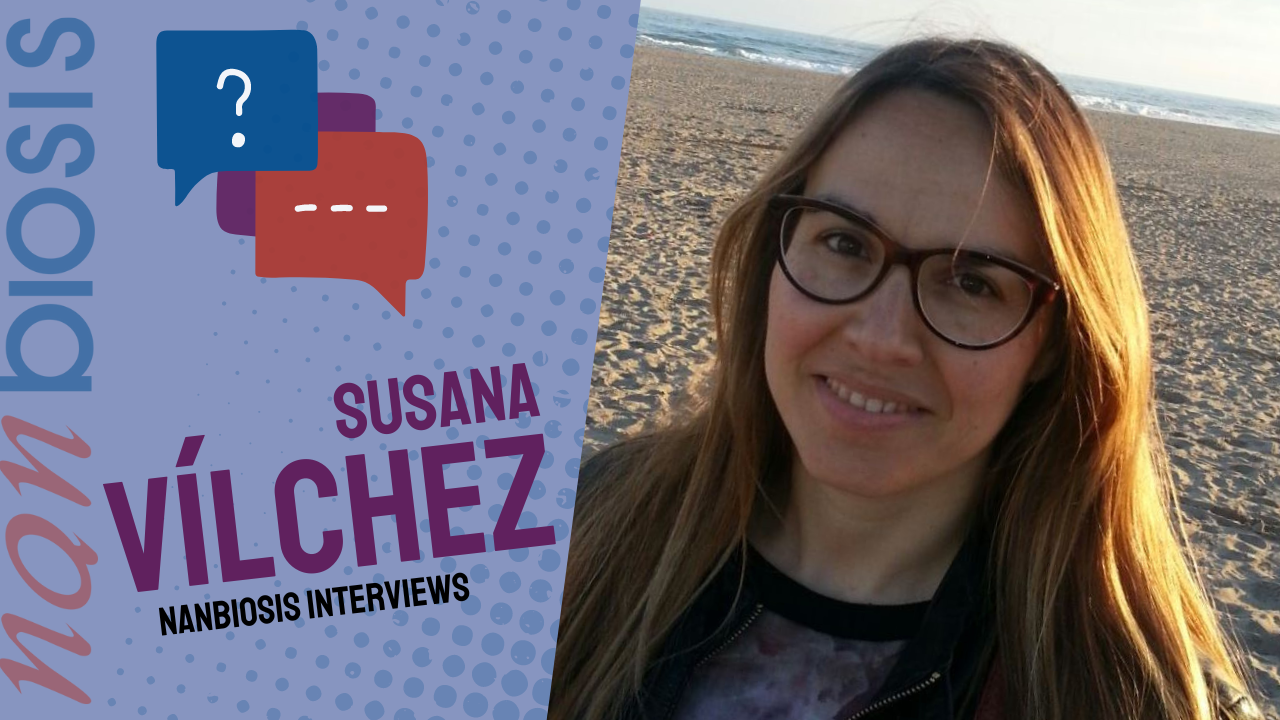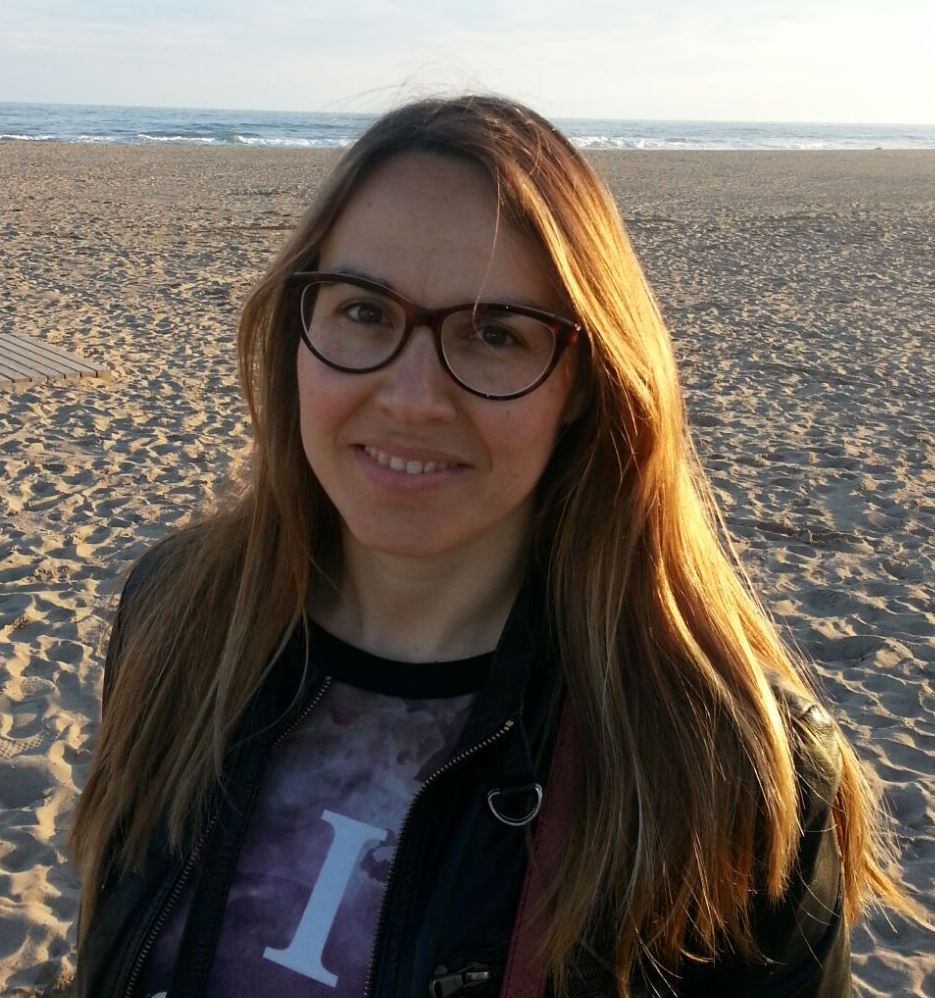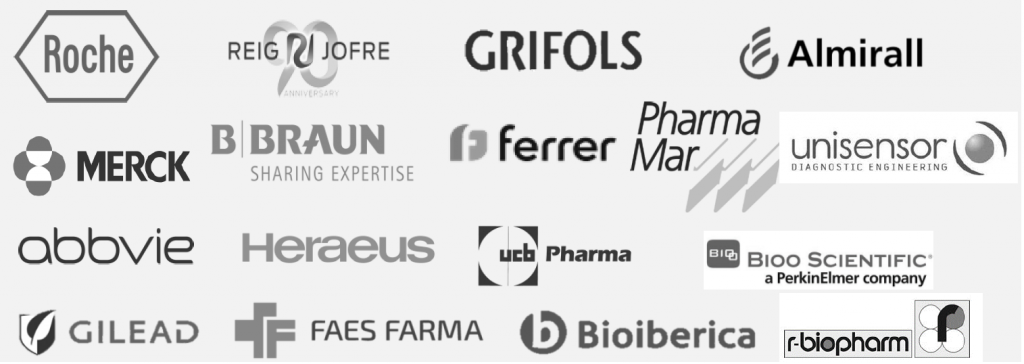
Dr. Vílchez, our esteemed colloidal chemistry researcher, discusses her focus on water-in-water emulsions and microcoacervates. She highlights gender biases in science and advocates for inclusivity and recognition of women’s contributions.
This is part of a series of interviews to several female researchers within the context of International Day of Women and Girls in Science 2024 and Woman’s Day 2024. For more interviews, visit our news section here.
March 2024, IQAC-CSIC, Barcelona (Spain)
Dr. Susana Vílchez, an esteemed researcher in colloidal chemistry, and the technical and quality manager of Unit 12 of NANBIOSIS, offers a profound insight into her research endeavors and career trajectory. Specializing in the characterization of colloidal systems such as micelles, vesicles, emulsions, and more, her current focus lies on the intriguing realm of water-in-water emulsions and the formation of microcoacervates, serving as a model for membraneless organelles (MLO) by introducing DNA into these emulsions. As we delve into her motivations, achievements, and challenges within the scientific domain, Dr. Vílchez sheds light on the gender biases prevalent in her field and offers invaluable perspectives on fostering gender equality in science. Through her experiences and unwavering dedication, she inspires young women to pursue their scientific aspirations while advocating for broader inclusivity and recognition of women’s contributions in shaping the scientific landscape.
Could you share with us a bit about your research area and the projects you are currently working on?
“My research area is colloidal chemistry, specifically the characterization of colloidal systems such as micelles, vesicles, emulsions, gels, liquid crystals, etc. One of the projects I’m working on involves water-in-water emulsions and the formation of microcoacervates by adding DNA to these emulsions. These microcoacervates can be used as a model for so-called membraneless organelles (MLO).”
What motivated you to choose a career in research?
“Since I was little, I’ve always liked knowing the reason behind things. I remember I really enjoyed a series of cartoons that dealt with the human body, as well as other TV shows like ‘El hombre y la Tierra’ (The Man and the Earth) and ‘El mundo submarino’ (The Underwater World).”
What do you consider to be your greatest achievement or contribution in your field?
“I have contributed to the training of undergraduate and master’s degree students. I have tried to help them see their potential to develop as future scientists.”
Have you experienced any gender bias or added difficulties in your scientific career? How have you addressed this situation?
“Within my area of research, there has been more support for the scientific careers of men than women. Men are attributed greater capability while women are seen as putting in more effort. To address this situation, I have tried to educate myself in areas that help me better develop my work, such as improving my communication skills, learning to manage stress, and becoming more resilient.”
How do you think gender stereotypes in the scientific field can be overcome?
“To overcome gender stereotypes in the scientific field, I believe we should approach the issue as a whole, from all sides. Firstly, we should strive to eliminate bias in education, both at the family level and in primary and secondary education. Secondly, we should avoid perpetuating gender stereotypes through media, social networks, video games, etc.”
What changes would you like to see in the scientific world to promote gender equality?
“I would like to see more support for women’s scientific careers. Despite policies aimed at reducing inequalities between men and women in the scientific world, men still predominantly occupy leadership positions. I would like to see greater inclusion of women to motivate them to pursue their scientific careers.”

“I would advise (young women) to pursue their dreams, to show others what they are capable of, and not to let themselves be underestimated.“
—Dr. Susana Vílchez, technical and quality manager of Unit 12.
What advice would you give to young women who are considering pursuing a career in science?
“I would advise them to pursue their dreams, to show others what they are capable of, and not to let themselves be underestimated. Our goals and purpose in life can be achieved with perseverance and effort.”
How do you think we can encourage more women and girls to participate in science?
“By promoting awareness in schools and high schools about the importance of science for society. I would also advocate for more scientific outreach programs in the media, television, radio, etc. Additionally, I believe it’s crucial to highlight the contributions of women in science, providing girls with female role models in the scientific world.”
For more interviews like this, visit our news section here.
Additional information:
The goal of NANBIOSIS is to provide comprehensive and integrated advanced solutions for companies and research institutions in biomedical applications. All of this is done through a single-entry point, involving the design and production of biomaterials, nanomaterials, and their nanoconjugates. This includes their characterization from physical-chemical, functional, toxicological, and biological perspectives (preclinical validation).
In order to access our Cutting-Edge Biomedical Solutions, place your request here.
NANBIOSIS has worked with pharmaceutical companies of all sizes in the areas of drug delivery, biomaterials and regenerative medicine. Here are a few of them:









